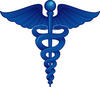Dr. Brett Parkinson with Mountain Medical shares the
signs and symptoms to look for.
________________________________________________________
On 12 July 2007, the CDC announced that it would be simplifying recommendations concerning vaccination against meningitis and other meningococcal disease. Previously, the meningococcal disease vaccine (MCV4) was recommended for children at ages 11 and 19; and if they had yet been vaccinated, for teens at high school entry, or for entering college freshman living in dorms.
Now the CDC and its Advisory Committee on Immunizations Practices now recommend that all adolescents aged 11-18 get vaccinated.
Meningitis is an infection of the membranes (meninges) and fluid surrounding the brain and spinal cord. It usually originates from infection elsewhere in the body either from a virus or a bacterium.
Viral meningitis is usually mild, clearing up in a week or two without specific treatment.Bacterial meningitis is much more serious. It causes severe disease and can result in permanent brain damage or death.
Certain kinds of bacteria cause bacterial meningitis. There isn’t really any way to avoid these bacteria. These bacteria often live harmlessly in a person’s respiratory tract, usually the nose and throat. Normally, they don’t cause any problems. However, in rare instances, they can break through the body’s immune defenses, travel to the fluid surrounding the brain and spinal cord and result in swelling and inflammation.
The infectious agents are usually spread from person to person in tiny drops of fluid from the respiratory tract of an individual who is infected. (The person spreading germs can either have the disease or simply be an asymptomatic carrier of the germ.) Risky behaviors include sharing food, drinking glasses, eating utensils, tissues or towels. Sharing of toothbrushes and kissing can also transmit disease.
SYMPTOMS OF BACTERIAL MENINGITIS:
• Severe headache
• High fever
• Stiff neck
• Light sensitivity
• Nausea and vomiting
• Sleepiness and confusion
• Skin rash of tiny, red-purple spots or bruises (caused by bleeding under the skin)
Symptoms are generally the same for children over two and adults. In newborns and infants, typical symptoms of fever, headache and stiff neck are harder to appreciate. In this age group, signs may include inactivity, vomiting, poor feeding or irritability. In fact, babies with meningitis often exhibit what is called “paradoxical irritability”–meaning they get more agitated when picked up and rocked. Parents should also be on the lookout for bulging fontanelles, the soft spot on the front/top of the baby’s skull.
Symptoms for viral meningitis can be similar; they include headache, stiff neck and fever; but are generally mild. Viral meningitis usually clears up in a week or two without specific treatment. Antibiotics are not indicated.
DIAGNOISIS OF BACTERIAL MENINGITIS:
Bacterial meningitis is diagnosed through a Spinal Tap (lumbar puncture)–A doctor inserts a needle in the lower back, removing a sample of fluid for analysis. This will often demonstrate low glucose (sugar), increased white blood cell count and increased protein. Can also identify exact organism causing the illness.
TREATMENT OF BACTERIAL MENINGITIS:
• Immediate Institution of intravenous antibiotic therapy
• Hospitalization
• IV therapy to replace fluids lost to fever and sweating
• Possible corticosteroids to reduce inflammation of the meninges.
COMPLICATIONS OF BACTERIAL MENINGITIS
• Seizures
• Hearing loss
• Blindness
• Loss of speech
• Learning disabilities
• Brain damage
• Paralysis
RISK GROUPS:
• Children under 5, young people ages 15 to 24 and the elderly.
• People living in a close-knit community: college students in dorms, children in boarding school, personnel on military bases (especially recruits living in barracks) and small children in daycare facilities.
• People with comprimised immune systems.
• Pregnant women (listeria meningitis).
• People who work with domestic animals (listeria meningitis).
• Travelers to countries where outbreaks of disease common
PREVENTION OF BACTERIAL MENINGITIS
• Vaccination: Meningococcal vaccine (MCV4) for 11-18 year-olds, college freshman and military recruits; Pneumococcal conjugate vaccine (PCV7) for children under two (part of regular immunization schedule), and ages 2-5 with heart chronic heart or lung disease; and Pneumococcal polysaccharide vaccine (PPV) for all adults older than 65 and older children at risk for pneumococcal disease because of chronic illnesses like heart disease, diabetes or sickle cell anemia.
• Meticulous hand washing
• Antibiotics for those exposed to meningitis
If meningitis is suspected, the patient should be taken immediately to an emergency room. If diagnosed and treated promptly, the majority of people make a complete recovery.















Add comment